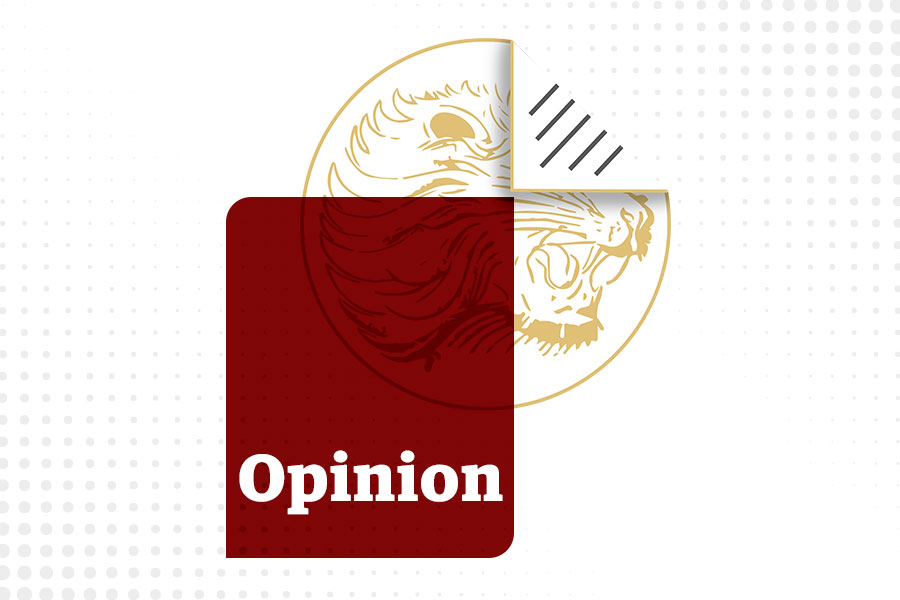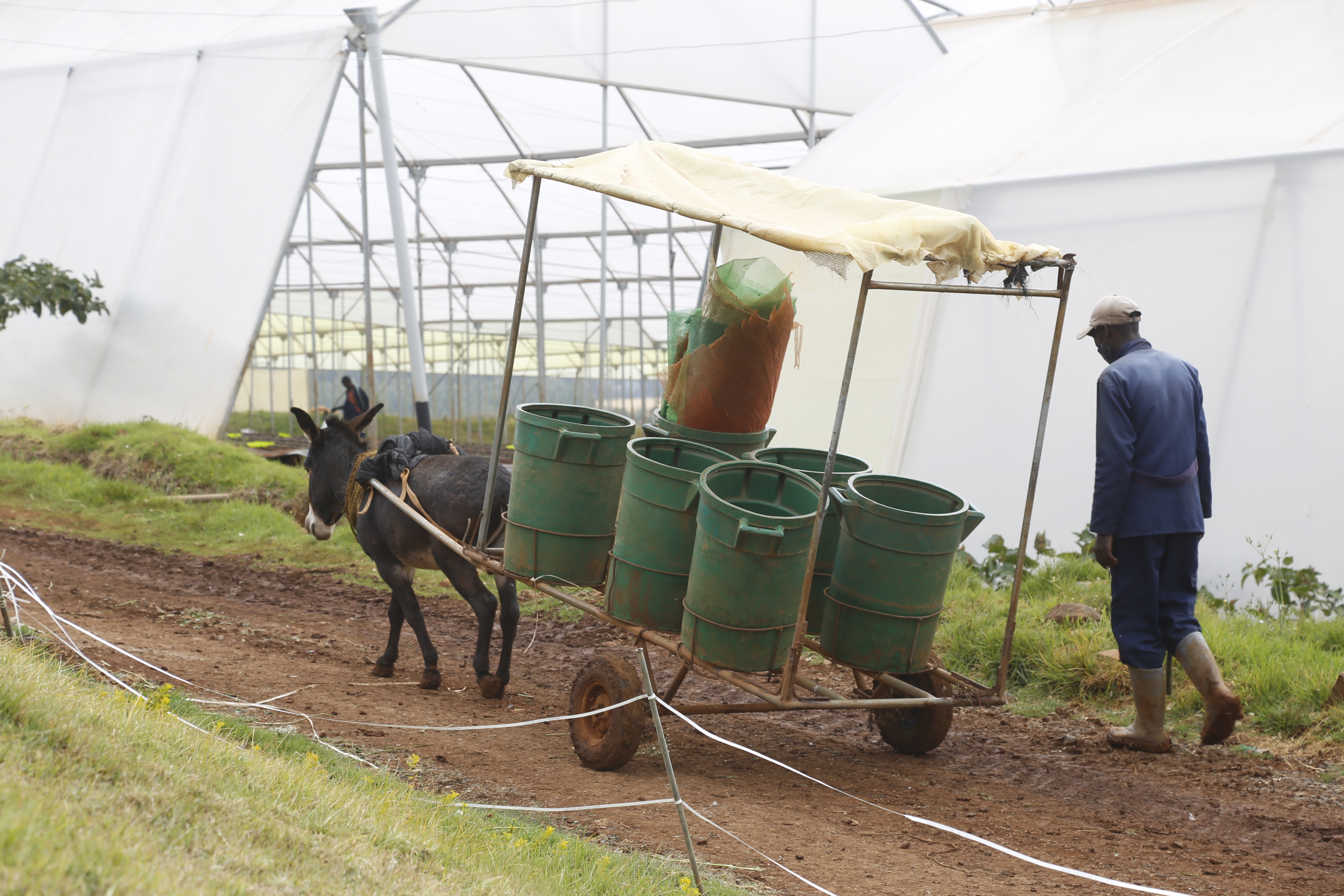
In-Picture | Jun 29,2025
Aug 10 , 2024
By Mariana Mazzucato
Collective intelligence is becoming a catchphrase meant to capture the essence of the knowledge economy, where multitudes of people collaborate on difficult challenges, with each bringing something different to the table. The result is continuous experimentation and innovation, leading to great discoveries. And with the proliferation of artificial intelligence (AI), the participants in this process may not even be human.
Isn't that a nice thought?
As compelling as this description may be, our romantic narrative of how discovery occurs obscures the "terms" of collaboration.
Who is participating? Who is creating value? And how are the rewards being distributed?
Those profiting from the status quo would prefer that we not ask.
Yet these are pertinent questions because many who contribute to innovation are often overlooked. Labour regularly gets dismissed, as does the state. I called attention to this in my 2013 book, "The Entrepreneurial State", which examined the tendency to see the private sector as a value-creating risk taker, and the state as merely a de-risker or impediment to value creation. This traditional framing ignores the state's role in funding innovations like the mRNA COVID-19 vaccines, supported by 31.9 billion dollars in US public investment.
Unless we rethink these narratives about value creation, innovation will continue to benefit only shareholders, rather than all stakeholders – from workers to the communities where businesses operate. For "stakeholder value" to be more than a corporate governance gimmick, we should not only recognise that value is created collectively, but also ensure that the rewards are shared more broadly across all creators.
For example, profits should be reinvested in the real economy, rather than being put toward share buybacks, which totaled 6.3 trillion dollars between 2010 and 2019. Making matters worse, under the current system, tax havens collectively cost governments from half a trillion dollars to 600 billion dollars a year in lost corporate-tax revenue, and the magnitude is even greater when considering wealthy individuals as well. This avoidance prevents all stakeholders from reaping the rewards of collective intelligence and collaboration.
To fix the problem, one should understand how collective intelligence leads to value creation in the first place.
Collaboration entails knowledge sharing, but if we privatise knowledge and research, this becomes more difficult. It makes sense to have intellectual property rights to incentivise investment and innovation. But, if those rights are too broad, they can be abused for strategic reasons. If they are too strong, technologies become harder to access or license. And if they are too concentrated upstream, with basic research tools remaining privatised, discovery and innovation will suffer.
As contracts that grant 17 years of monopoly profits to a business (in the US case), patents should be negotiated and governed with these considerations in mind. Rather than serving merely as a tool to fix information asymmetries – a type of market failure – they must shape the broader knowledge-governance system.
How might a genuine collective intelligence framework alter the structure of patents (in medicine, for example) and other contracts that determine how knowledge is created and shared?
As I have argued previously, the objective of all our collective economic activity should be to serve the common good. This principle should guide our thinking about collaboration and the distribution of rewards.
Whenever wealth is created socially, many partners in the collaborative process will have taken a risk without guaranteeing a return. As powerful as collective intelligence may be, failure is always a possibility. But when success does come, the returns ought to be shared as widely as the risks were. Otherwise, the arrangement is more parasitic than symbiotic.
A mutualistic innovation ecosystem would ensure that the monetary rewards are shared (such as through profit-sharing or equity schemes), the knowledge is shared, or that the prices of the final products (like medicines) reflect the collective investment that went into them. This is rarely the case, not only with medicines but also with digital technologies and renewable energy. For example, many renewable-energy companies benefit from generous tax schemes, which means the public supports their profit margins without partaking in the gains.
A common-good approach would ensure that new technologies like AI create opportunities for public value creation in the digital domain. Diversity is essential here because innovation benefits from different perspectives. That is why Apple brought in musicians, designers, and artists to help design its products. The original moon landing succeeded because different departments in NASA worked together horizontally rather than vertically.
Collective intelligence is not groupthink, which merely creates siloes and introduces unnecessary risks. I warned in a previous commentary that AI-powered systems are reproducing unfair social biases. Without better oversight, algorithms that are supposed to help the public sector manage welfare benefits may discriminate against needy households.
Finally, voice matters, because finding durable solutions to our biggest problems increasingly requires contestation and negotiation. Too often, policy outcomes are distorted by those with the loudest voice, those who can afford the best lawyers, and those with the most power to influence the direction and define the purpose of innovation.
Is digital data collection and analysis supposed to make a few people rich, or should it liberate us, such as by helping to make housing more available and affordable? Given that technology consumers often provide their personal data to corporations for free – even amid growing concerns about data privacy – shouldn't they have a voice in how that technology is developed?
Or consider climate change. Indigenous communities disproportionately bear the consequences of a problem created by others.
Should they not have a prominent seat at the table when discussing the Amazon and how to protect it is concerned?
In the recent negotiations for a global pandemic treaty, lower-income countries were asked to share pathogen data without any guarantee that they would have access to the resulting products. These stakeholders need to have a say in determining the future of pharmaceutical innovation and how its rewards are distributed.
The reality of how value is created and distributed through collaborative innovation has been woefully obscured. By debunking the myth that the private sector creates value and that the state is, at best, a de-risker and crisis manager, we can develop a proper understanding of how innovation works. If we want to leverage the power of collective intelligence, we will need to adopt a common good framework. Given the scale of today's global challenges, we will need to do it fast.
PUBLISHED ON
Aug 10,2024 [ VOL
25 , NO
1267]


In-Picture | Jun 29,2025

My Opinion | Apr 22,2023

Commentaries | Sep 27,2025

Sponsored Contents | Nov 28,2024

In-Picture | Nov 16,2024

Radar | Feb 17,2024

Fortune News | Sep 09,2024

Radar | Jul 13,2025

Addis Fortune | Jul 03,2025

Obituary | Sep 14,2024

Photo Gallery | 171726 Views | May 06,2019

Photo Gallery | 161965 Views | Apr 26,2019

Photo Gallery | 151709 Views | Oct 06,2021

My Opinion | 136317 Views | Aug 14,2021





Dec 22 , 2024 . By TIZITA SHEWAFERAW
Charged with transforming colossal state-owned enterprises into modern and competitiv...

Aug 18 , 2024 . By AKSAH ITALO
Although predictable Yonas Zerihun's job in the ride-hailing service is not immune to...

Jul 28 , 2024 . By TIZITA SHEWAFERAW
Unhabitual, perhaps too many, Samuel Gebreyohannes, 38, used to occasionally enjoy a couple of beers at breakfast. However, he recently swit...

Jul 13 , 2024 . By AKSAH ITALO
Investors who rely on tractors, trucks, and field vehicles for commuting, transporting commodities, and f...

Oct 4 , 2025
Eyob Tekalegn (PhD) had been in the Governor's chair for only weeks when, on Septembe...

Sep 27 , 2025
Four years into an experiment with “shock therapy” in education, the national moo...

Sep 20 , 2025
Getachew Reda's return to the national stage was always going to stir attention. Once...

Sep 13 , 2025
At its launch in Nairobi two years ago, the Africa Climate Summit was billed as the f...

Oct 5 , 2025 . By NAHOM AYELE
In Meqelle, a name long associated with industrial grit and regional pride is undergo...

Oct 5 , 2025 . By BEZAWIT HULUAGER
The federal government is set to roll out a new "motor vehicle circulation tax" in th...

Oct 5 , 2025 . By NAHOM AYELE
The Bank of Abyssinia is wrestling with the loss of a prime plot of land once leased...

Oct 5 , 2025 . By BEZAWIT HULUAGER
The Customs Commission has introduced new tariffs on a wide range of imported goods i...